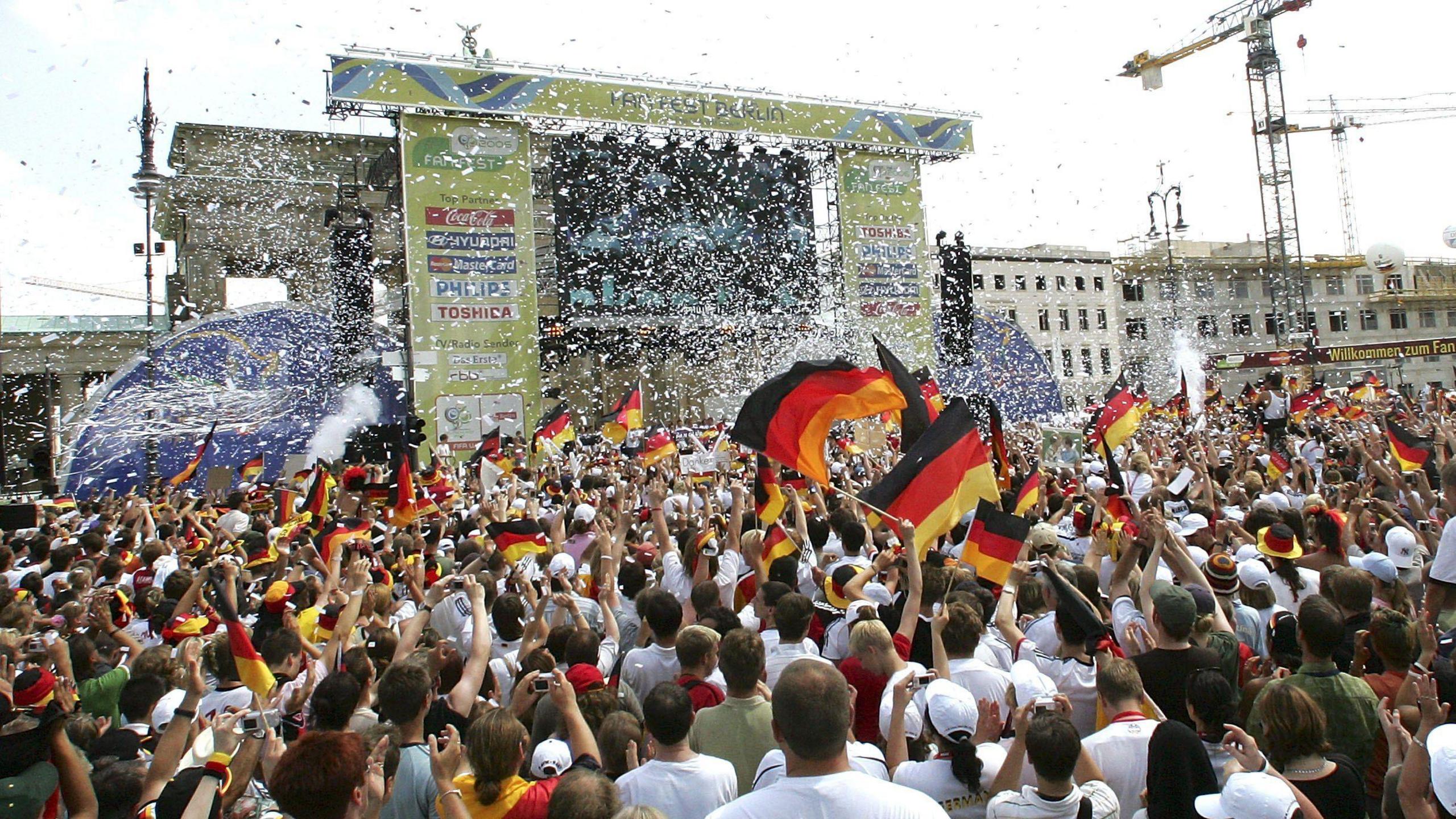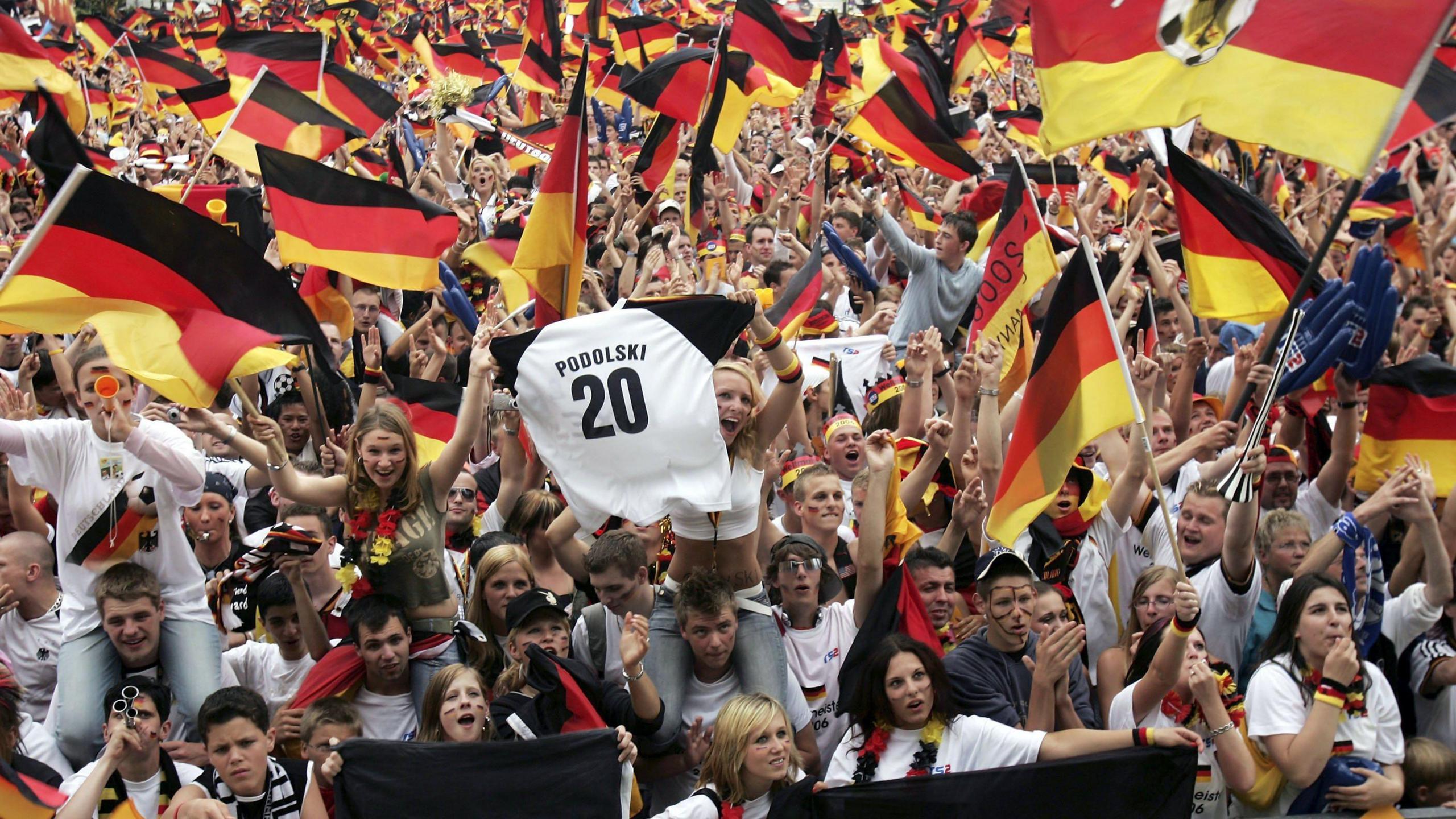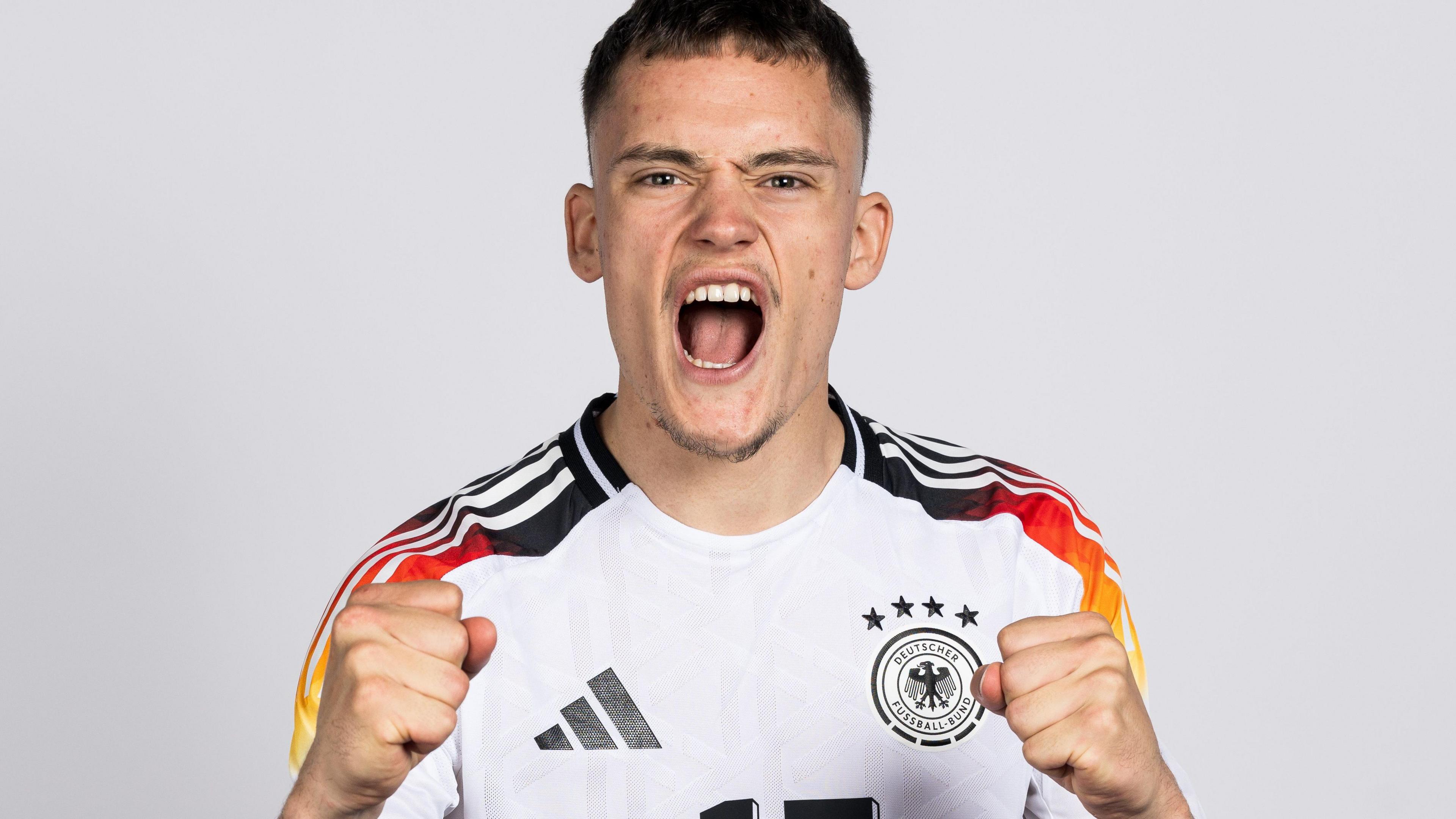'Germany hoping for another summer fairytale'

- Published
Two days to go! The closer we get to Euro 2024, the more excited I become – and there is so much to look forward to.
All the talk and anticipation in Germany is about the possibility of a second 'summer fairytale', or 'Sommermarchen', which is what the World Cup became known as when we hosted it in 2006.
It was a special time, and I am hoping to experience something similar, in full, at this tournament.
In 2006, I was so happy to be involved in the Germany squad, but then I hardly played. It was still a big privilege to be in the camp and I understood what was going on around it, but I did not get to take it in fully and sometimes it made me sad not being able to celebrate with everyone else, when they were having the time of their lives.

Hundreds of thousands of fans gathered at the Berlin Fan Mile at the Brandenburg Gate to watch games during the 2006 World Cup, and turned out in huge numbers to greet the team after they won the third-place play-off
This time, I can enjoy it properly from the start, and I really want to make the most of every day. I am going to be travelling around the country a lot, working as a pundit at games for German broadcaster ARD and BBC Sport, and almost every day I will be in a different city.
There will be people from all over Europe coming to Germany to enjoy the football, and enjoy the country, and I expect to meet people who are having a great time, are looking forward to the games and are in good spirits.
I want to catch those memorable moments and capture those powerful emotions. We always talk about why football is so important and I want to experience it first-hand, as a fan as well as a pundit, because I love the game and I know what it can do to people.
'Let it happen organically again'
At first, my perspective in 2006 was only as a player – my first concern was getting in the squad – but then the World Cup started and we experienced this amazing side of our country that we had not really seen before.
Up until then, big shows of national pride were problematic in Germany, because of our past. We have a very difficult relationship with our flag, given our history, but suddenly there were flags and face paint everywhere you looked: the black, red and gold.

Germany fans during the 2006 World Cup
We had not really watched games together in big groups before either, but we even created a new term for it. 'Public viewing', as it was known, became so popular. The amazing Fan Mile by the Brandenburg Gate in Berlin and the mass viewing zones in the other cities, all of that, it was all new too.
We got lucky with the weather as well. In 2006, we had the kind of glorious summer you don't often get in Germany. There was sunshine almost every day, which we don't normally have.
You were left thinking that this was so crazy, where did it even come from? Everyone loved it, and I think it almost happened organically – it wasn't a case where everyone tried so hard, or thought 'how can we make this the best tournament there has ever been?'.
Now in Germany, people are saying they want a repeat of the 'Sommermarchen', and we are working hard to replicate it, but you cannot really force something like that - there are so many elements that are required if it is going to happen again.
I just think you have to let go. Let the football take care of things, let people meet and expect them to bring out the best in others.
You need rules in certain areas, of course, but football brings people together and if they are given freedom then something amazing will happen.
What about the Germany team?

Bayer Leverkusen forward Florian Wirtz is one of the stars of the Germany team, who face Scotland, Switzerland and Hungary in Group A
Every football fan in Germany wants to have a good summer together, but they need a team that the fans can identify with. At the moment that is a bit like the weather - we don't know if that will happen again either.
After our two friendly wins over France and the Netherlands in March, people were saying we are back where we need to be, playing good football. But we have just had the two friendlies against Ukraine and Greece which did not go quite so well and now they are saying 'we don't know where this is going'.
So, we really need a good opener against Scotland on Friday, just to get that connection again.
The Germany team has been criticised for the past few years now, but the World Cup in 2022 was probably the worst experience, where expectation from the fans was not met by the team, and vice versa.
That was a big controversy but I feel like we have recovered from that and put it behind us.
There are some parallels here with 2006 too. I played in a lot of the friendlies before that World Cup and we did not do brilliantly in most of those games. Some of them were good, but we certainly weren't going into the tournament thinking we were going to smash it.
It really just came down to the opening game, when Philipp Lahm's goal after six minutes against Costa Rica felt like some kind of explosion and gave us a feeling that was not foreseeable for us beforehand and we ended up reaching the semi-finals.
It is the same now, when I look at this Germany team. I don't think we are underdogs, but we are not the definite big favourites, and things could go two ways.
Either the pressure of playing in a home tournament weighs too much on the squad, or it really elevates them like it did with us – I don't think there is anything in between.
'It's time to focus on football again'
We cannot ignore what is happening off the pitch either, but the backdrop to this whole tournament is very different to the Qatar World Cup in 2022.
There was a difficult debate when Russia were hosts in 2018 as well and then we had the Covid-hit European Championship in 2021, so it is nice to be able to focus more on the football again.
Some of those conversations have not gone away, of course. The whole climate change debate is also part of this tournament and I know the organisers have said they want these to be the most sustainable Euros there has been.
No new stadiums have had to be built, which is a big plus, while fans are encouraged to travel from city to city by train, and teams have been placed in clusters so they only play in certain parts of the country in the group stages and travel times are reduced.
There has also been a declaration by Uefa, the German Football Association and the German government to protect human rights during the tournament. We have a responsibility to do that, as part of the way we want to portray our country to the world.
That was a big part of what made 2006 so special, when we showed everyone that our identity as a nation was to be friendly and welcoming.
We want to do the same thing again, to present ourselves in the best possible way, and show that you can come here to visit and we are great hosts.
But Euro 2024 will come in its own format, with different experiences and especially with the new pictures and videos that we will see. Having social media now means we will get so many side stories that otherwise would never have been told.
I don't know yet what this tournament will look like or what it will be remembered for, but I can't wait for it to get started.
I hope we can make it about fans from 23 different countries meeting in Germany, making new friends and having a great time together over the next four weeks. Let the party begin!
Thomas Hitzlsperger was speaking to BBC Sport's Chris Bevan.